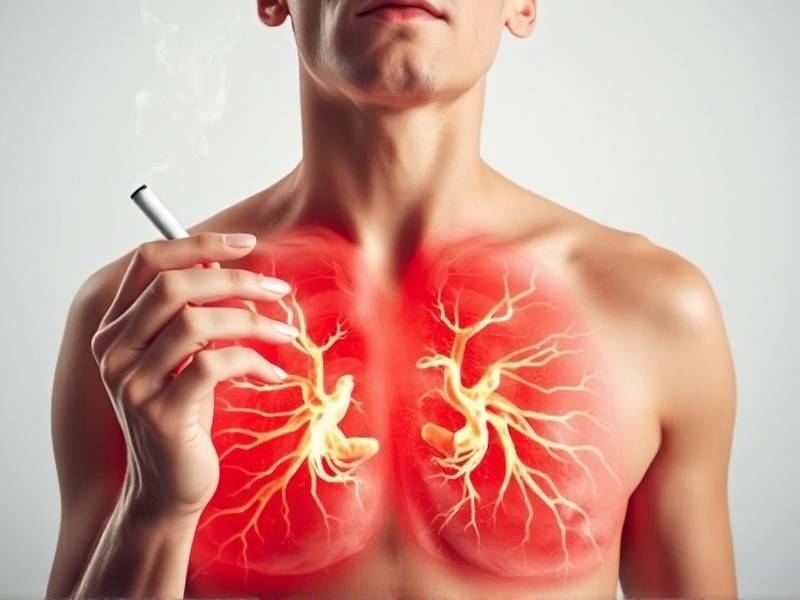Does Quitting Smoking Really Make Your Chest Hurt? The Truth You Need to Know
Introduction: The Common Concern About Quitting Smoking
When it comes to quitting smoking, one of the most common concerns is the discomfort in the chest. Many smokers fear that giving up their habit might lead to chest pain or discomfort. In this article, we will delve into the truth behind this concern and provide you with all the information you need to know.
Understanding the Link Between Smoking and Chest Pain
It's no secret that smoking can lead to various respiratory problems, including chest pain. However, does quitting smoking automatically result in chest pain? Let's explore this topic further.
1. The Effects of Smoking on Your Lungs
Smoking causes a significant amount of damage to your lungs. The chemicals in tobacco smoke irritate the delicate lung tissues, leading to inflammation and scarring. Over time, this can cause a variety of respiratory issues, including chest pain.

2. The Healing Process After Quitting Smoking
When you quit smoking, your body begins the process of healing. This healing process can sometimes be accompanied by temporary discomfort or pain as your lungs try to repair themselves.

Common Causes of Chest Pain After Quitting Smoking
Now that we understand how smoking affects your lungs and why quitting might cause some discomfort, let's look at some common causes of chest pain after quitting:
1. Coughing
One of the most common symptoms experienced when quitting smoking is coughing. This cough can be quite intense and may cause some chest discomfort as it clears out mucus from your airways.
2. Shortness of Breath
As your lungs heal and become more efficient at oxygenating your blood, you may experience shortness of breath initially. This can also contribute to a sense of tightness or pain in your chest.
3. Lung Inflammation or Pneumonia
In some cases, individuals who quit smoking may develop lung inflammation or pneumonia due to an increased risk of infection as their immune system strengthens.
How Long Does Chest Pain Last After Quitting Smoking?
The duration of chest pain after quitting smoking varies from person to person. In most cases, you can expect symptoms to improve within a few weeks to a few months after quitting.
Tips for Managing Chest Pain While Quitting Smoking
If you experience chest pain while trying to quit smoking, here are some tips that may help:
- Stay hydrated by drinking plenty of water.
- Practice deep breathing exercises.
- Avoid triggers that may exacerbate your symptoms.
- Consult with a healthcare professional for personalized advice and support.
Conclusion: The Importance of Patience and Support
Quitting smoking is a challenging journey, but it's worth it for your health. Remember that temporary discomfort is often part of the healing process as your body adapts to being smoke-free. Be patient with yourself and seek support from friends, family, or professionals when needed.
By understanding the truth about quitting smoking and its effects on your body, you'll be better equipped to navigate this journey towards a healthier life.
